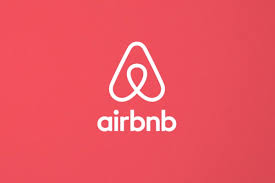
The explosion of the sharing economy and in particular short term rentals offers real estate investors a lucrative opportunity to generate increased cash flow. However, with new opportunities come with new risks and nothing can be further from the truth when it comes to short term rentals. The people who occupy your property are usually there on vacation to have a good time and are not pre-screened nearly as extensively as a long term tenant. These guests are typically unfamiliar with the unique aspects of your property and may not treat your property the same as they would in their own home. The constant traffic of guests coming in and out of your property increases the possibility of nuisances, injuries and theft. If anything unfortunate happens in your short term rental, who will be the first person they call?
Homeowner’s and Landlord’s Insurance Coverage
Many owners of short term rentals are not familiar with the insurance coverage (or lack thereof) for their short term rental thereby increasing the risks of gaps in coverage. A Homeowner’s insurance policy contains an exception for “business pursuits,” and therefore will not cover property used regularly as a short term rental. There may be an exception if you live in the property and only rent out a portion of your property for certain special events like the Superbowl or Kentucky Derby, but you need to confirm these details with your insurance company, for example as some may require prior notification. Similarly “Landlord” policies typically only cover longer term leases and would not cover short term rentals where there are higher turnover of occupants. For these reasons, short term rentals will likely require a separate policy that covers these types of business activities within the property.
Consider the case of Louis Stone in a story reported by the New York Times in 2015 who was killed when a tree fell on him while staying at an AirBnB in Texas. The host in that case did have a “commercial” insurance policy and was able to reach a settlement with the Stone family. However, if you were in a position of not having coverage, not only are you exposed to potential catastrophic liability, but could be hit with the double whammy of having to hire and pay your own attorney to defend.
AirBnb and VRBO Insurance Products
Some online listing sites do provide some insurance to cover risks arising from short term rentals, but as with all things insurance, the devil is in the details. For example, both of the most popular listing sites VRBO and AirBnB currently offer some coverage for listing on their site. However, it is difficult to know exactly what is covered since the actual policy documents are not available on their websites and have been reportedly difficult to obtain from these sites.
The VRBO website purports to offer $1M in liability insurance that generally covers “bodily injury” or “property damage” for reservations processed through their website. However, it only covers certain property damage to the GUEST and would not cover property damage suffered by the host. So if the guest had a cooking incident and burned down the kitchen, that property damage might not be covered. Moreover, the coverage is capped at $1m per property per year, and therefore, would likely have been insufficient for a claim such as the Louis Stone case.
AirBnB currently has two programs. First is their “Host Guarantee” designed to provide protection specifically for damage to the Host’s property (the home, rooms, personal property of the host). This is not insurance per se, but more like a reimbursement agreement by AirBnB and, of course, there are stringent time restrictions and exclusions. For example, under their current policy dated June 19, 2017, it doesn’t cover theft of cash or securities, nor does it cover damages caused by “pets.” Moreover, the host must first notify the responsible guest and attempt to resolve the loss and then file the claim, all of which must occur at the earlier of 14 days after guest check out, or before the next guest checks in. This is an incredibly short timeline and means if you have back to back bookings, you need to carefully document any damages between stays and if there is damage, immediately attempt resolution with the guest AND then file the claim BEFORE the next guest checks in (Whew!).
AirBnB also offers “Host Protection Insurance” which in 2018 provides $1M of insurance coverage for bodily injury or property damage claims from third parties (e.g. guests). This is intended to protect the Host from claims by guests, which is important, but also has exclusions of its own, most notably, it doesn’t cover loss of earnings. So if an injury to a guest is severe enough to limit his/her ability to work (which is often one of the most significant liabilities in serious personal injury cases), and you do not specifically have coverage for this type of liability, who do you think will be paying for those lost future wages?
Use an LLC and Make Sure Your Contract Protects You
Moreover, the policies offered by these companies can and do change which is why you should rely instead on your own insurance policy rather than assume that the booking company will protect you. Additional steps you should take to protect yourself in your short term rental business include:
- Talk to your insurance broker about your coverage and any gaps in insurance. Make sure you have sufficient coverage for damage or theft to your own property, damage or theft of property of third parties, and personal injuries to third parties. Tips on how to communicate with your insurance broker can be found here:
- Have very clear rules and regulations for the use of the property and its amenities, and use a solid rental agreement.
- Require a significant security deposit to encourage occupants to be on their best behavior.
- Keep receipts of all personal property in the unit (in case you need to prove ownership) and have a property inventory checklist documenting the existence and condition of personal property/fixtures in the unit, and take pictures of the unit before and after each occupancy so you have a record of all property in the unit as well as the condition of the property, any fixtures, and any personal property in the unit before and after each stay. Hotels generally have full time maintenance and housekeeping and are required to comply with a variety of safety rules and inspections. You are essentially running a business that compete with the hotel industry so consider whether you should treat this business as if you were operating a hotel.
- Set up an LLC as a last line of defense for claims by third parties. If a lawsuit arises on the property, the plaintiff is forced to sue the LLC that owns the property and that leased the property to them. They cannot sue the owner personally. This protects your personal assets and income from the liability of the property.
Short term rentals can be a very attractive strategy for real estate investors as is shown by the fact Airbnb has grown to a $38 billion dollar company in just 10 years. However, anyone who simply Googles the numerous lawsuits involving AirBnb as well as the many personal injury attorneys who are marketing themselves to AirBnB guests can see that there are significant risks to operating a short term rental business. If a lawsuit ever arises, you will likely be held to the standard of a business and so you should be approaching your structure, procedures and practices as if this is a real business.
